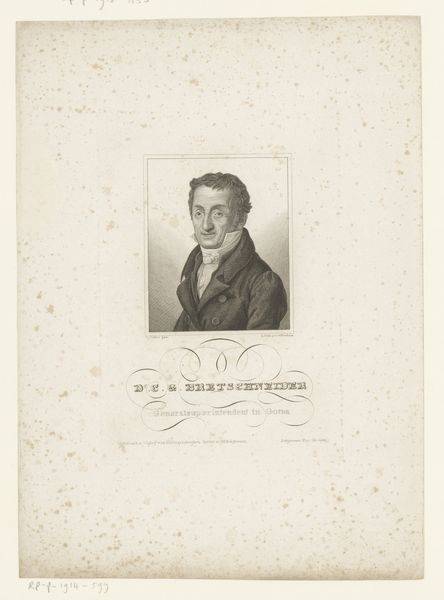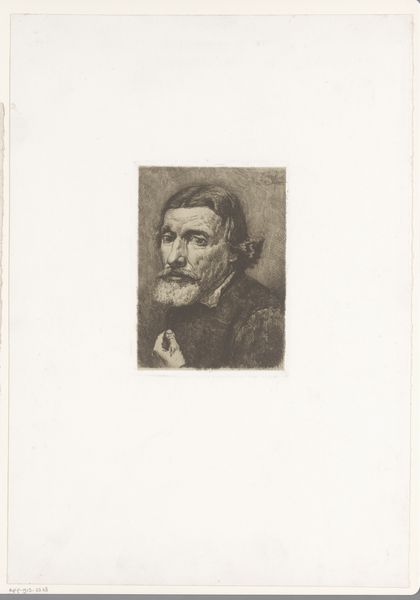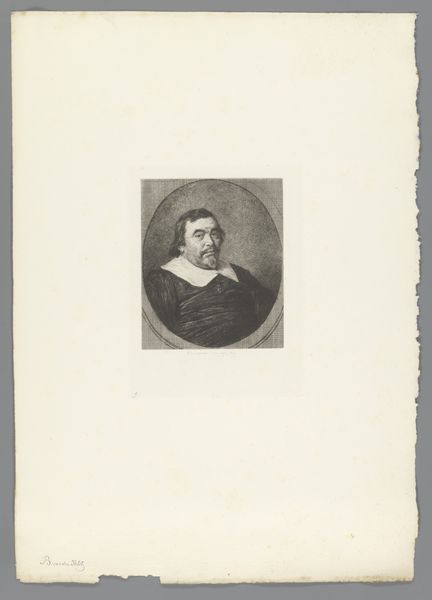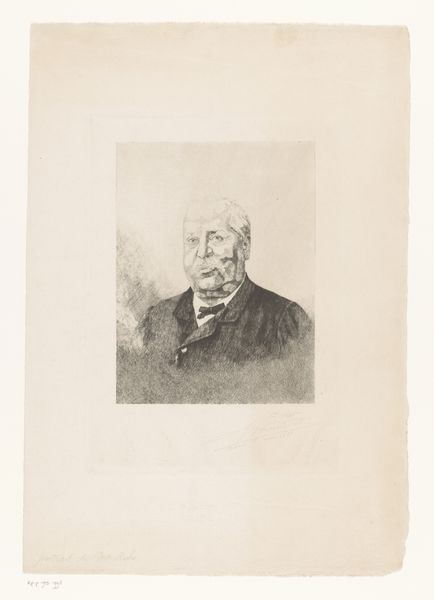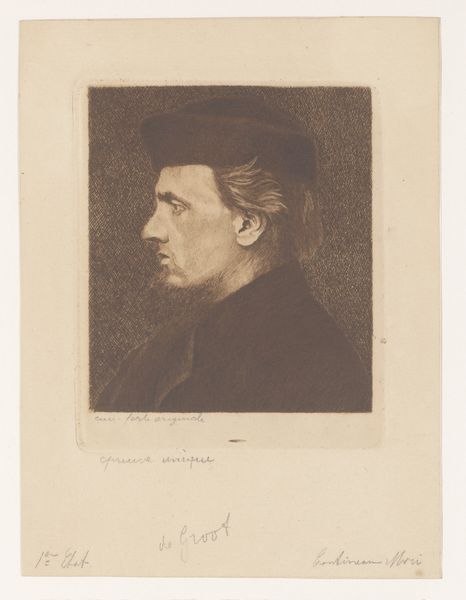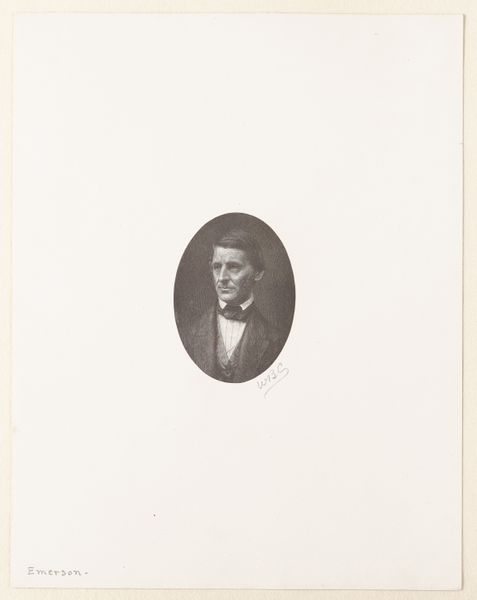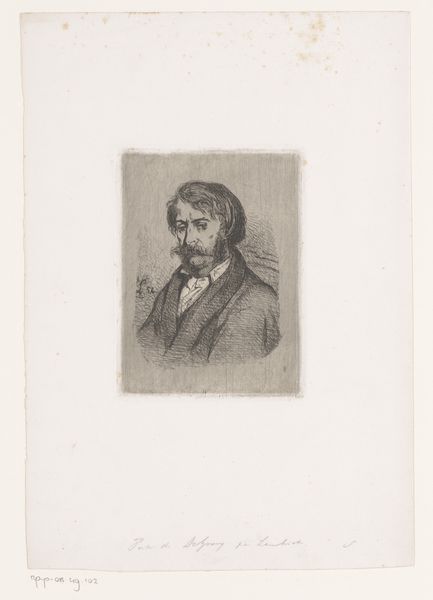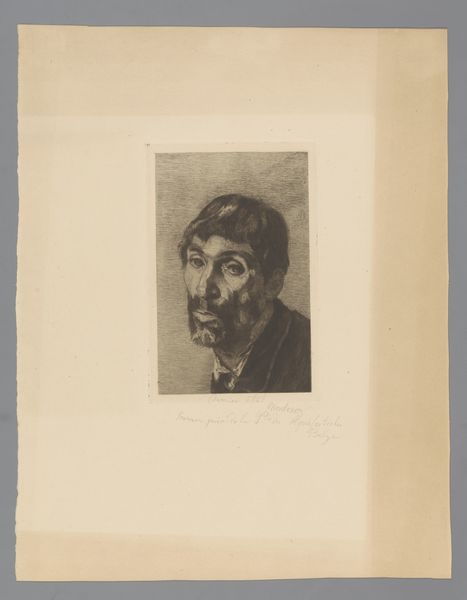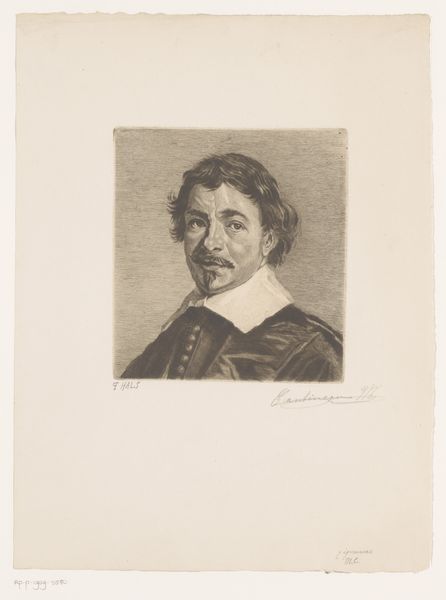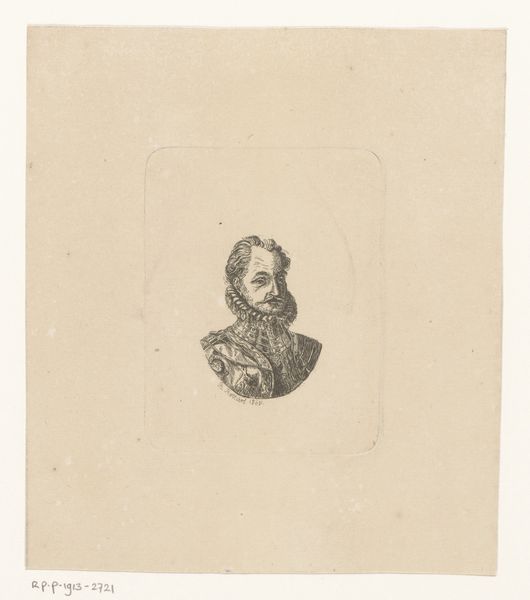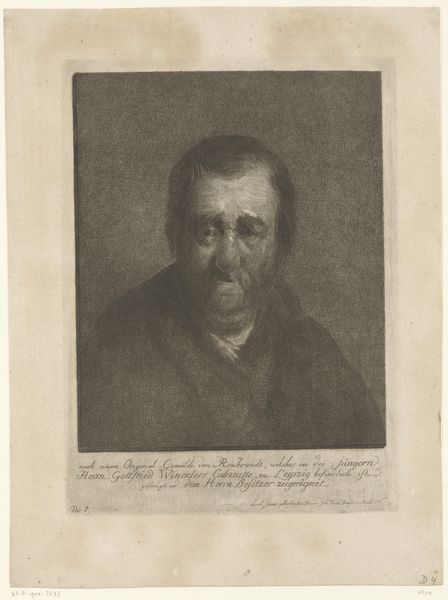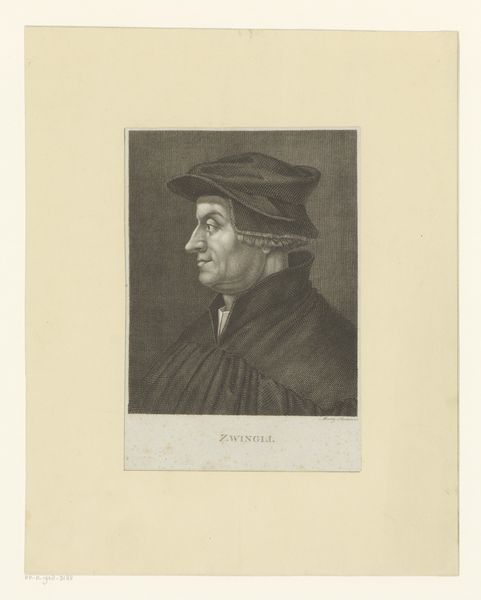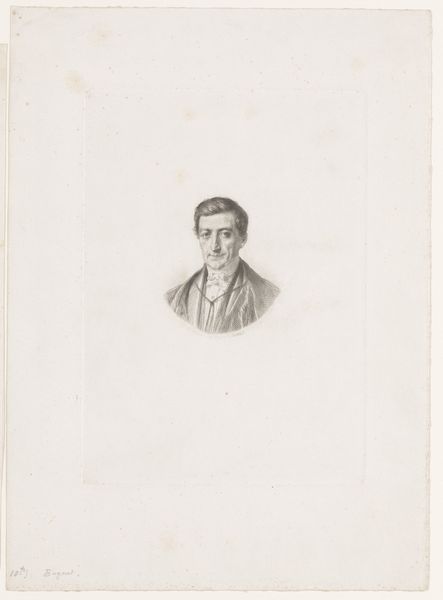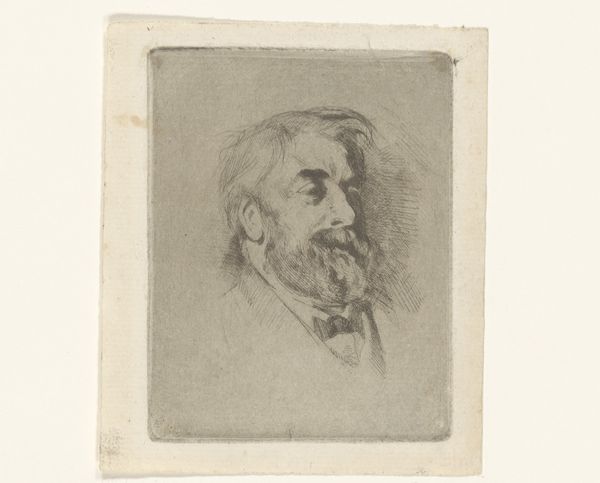
print, etching
#
portrait
#
16_19th-century
# print
#
impressionism
#
etching
#
realism
Dimensions: height 264 mm, width 181 mm
Copyright: Rijks Museum: Open Domain
This is Theodule Ribot's etching of Émile Cardon. Note the subject's gesture, his fingers delicately holding what appears to be a small object—perhaps a tool of his trade. The hand, an instrument of human will, takes centre stage. Consider the ancient world where hands were vital symbols: in early Christian art, the Hand of God represented divine intervention. Similarly, in ancient Egypt, hands symbolized power and creation. Even in modern times, the grasping hand appears, think of Rodin's sculptures, often conveying a sense of longing, or struggle. The detail Ribot gives to Cardon's hand might reflect a desire to represent the sitter's personality and inner state. Such emphasis suggests a deeper psychological reading: hands as signifiers of character, skill, and even destiny. As you stand here, consider how the motifs of hands persist. They recur, reappear, and transform, revealing the deep, often subconscious connections that tie us to those who came before.
Comments
No comments
Be the first to comment and join the conversation on the ultimate creative platform.
